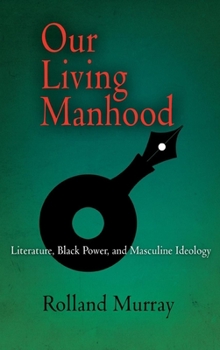Our Living Manhood: Literature, Black Power, and Masculine Ideology
When Eldridge Cleaver wrote in 1965 that black men "shall have our manhood or the earth will be leveled by our attempt to gain it," he voiced a central strain of Black Power movement rhetoric. In print, as well as on stage and screen, Black Power advocates equated masculinity with their political radicalism and potency. While many observers have criticized the misogyny in this preoccupation, few have noted the challenges to it within the period...
Format:Hardcover
Language:English
ISBN:0812239725
ISBN13:9780812239720
Release Date:January 2007
Publisher:University of Pennsylvania Press
Length:160 Pages
Weight:0.90 lbs.
Dimensions:0.8" x 6.1" x 9.0"
Customer Reviews
0 rating





